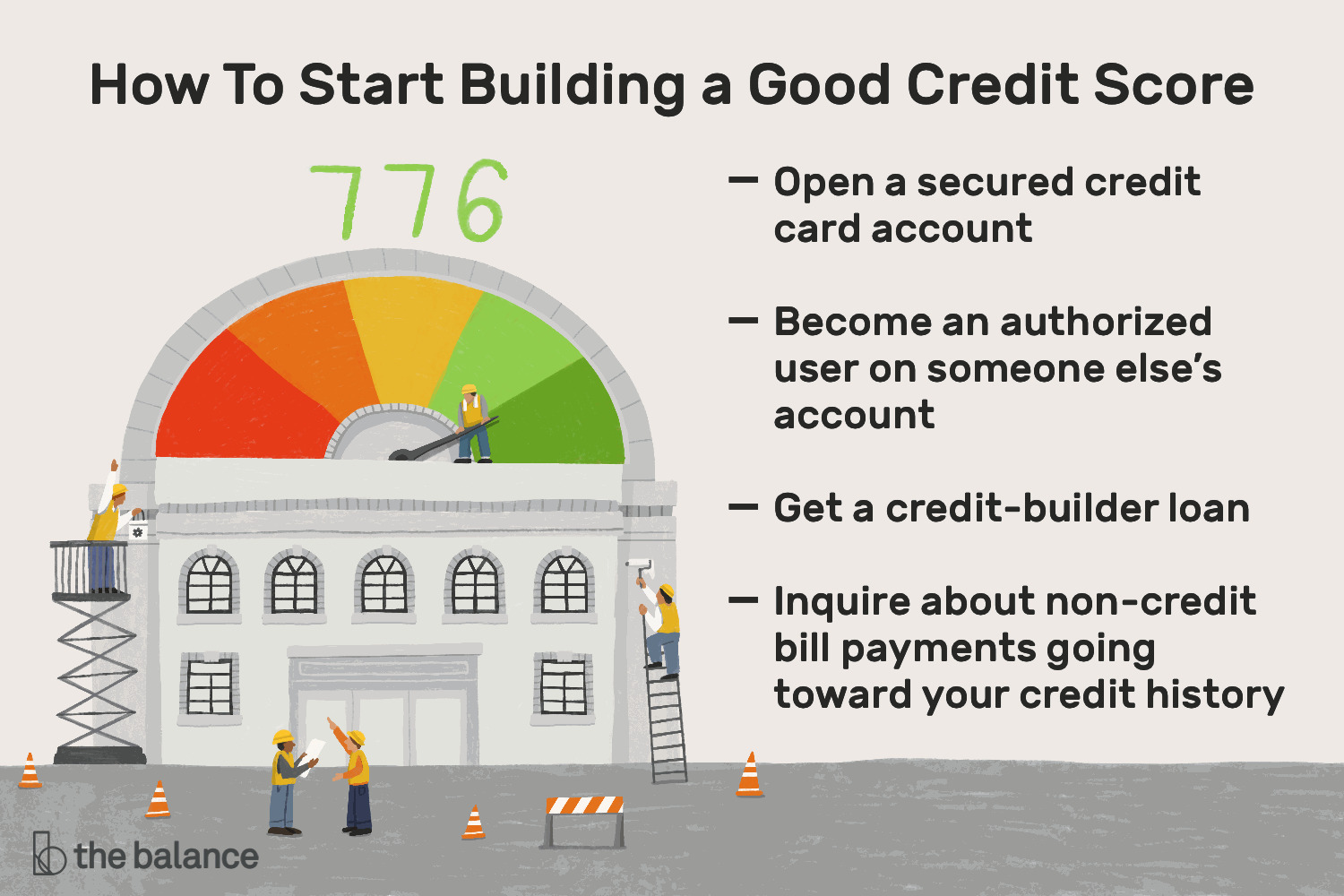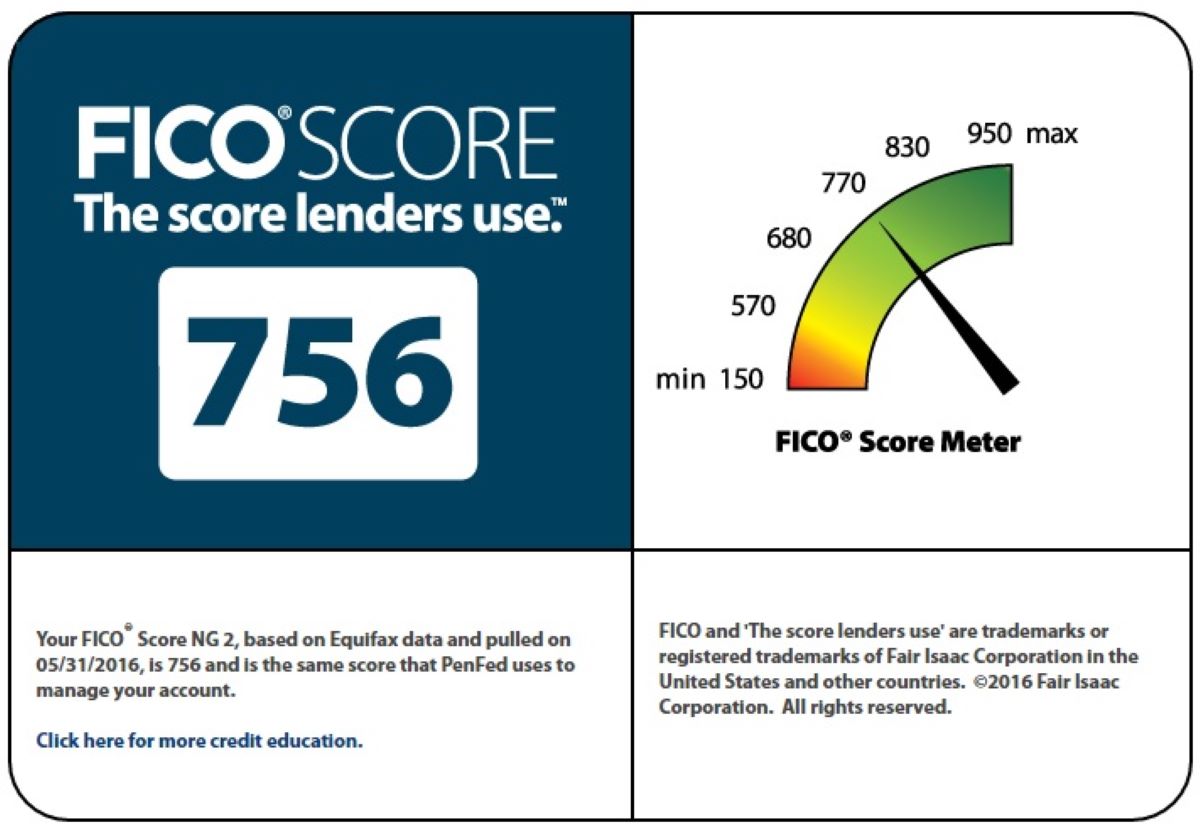

Finance
How Long Does It Take To Get A FICO Score
Published: March 6, 2024
Learn how long it takes to establish a FICO score and the key factors that impact your credit rating. Get expert advice on managing your finances effectively.
(Many of the links in this article redirect to a specific reviewed product. Your purchase of these products through affiliate links helps to generate commission for LiveWell, at no extra cost. Learn more)
Table of Contents
Introduction
Understanding the Journey to a FICO Score
Embarking on the quest for a FICO score can be likened to a financial odyssey, with twists and turns that can significantly impact one's financial trajectory. Aspiring homeowners, savvy credit card users, and individuals seeking favorable loan terms all share a common destination: a commendable FICO score. However, the path to achieving this pivotal financial milestone is shrouded in mystery for many.
In this comprehensive guide, we will navigate the intricate terrain of FICO scores, shedding light on the factors that influence their formation, the timeframes involved, and strategies for enhancing these critical numerical representations of creditworthiness. Whether you're a newcomer to the realm of credit or an individual seeking to fortify your financial standing, this exploration will equip you with the knowledge needed to embark on this transformative journey.
Join us as we demystify the journey to a FICO score, unraveling the intricacies that dictate its emergence and unveiling the strategies that can expedite its arrival. Let's embark on this enlightening expedition, arming ourselves with the insights needed to navigate the labyrinthine landscape of credit scores and emerge triumphant in our financial pursuits.
What is a FICO Score?
At the heart of the financial realm lies the FICO score, a numerical representation of an individual’s creditworthiness that wields considerable influence over their financial opportunities. Developed by the Fair Isaac Corporation, the FICO score serves as a pivotal barometer for lenders, enabling them to assess the risk associated with extending credit to an individual.
Comprising a three-digit number ranging from 300 to 850, the FICO score encapsulates an individual’s credit history, reflecting their borrowing behavior, credit utilization, payment history, and the diversity of their credit accounts. This amalgamation of financial data coalesces into a comprehensive snapshot of an individual’s creditworthiness, influencing their ability to secure favorable loan terms, obtain credit cards, and even impact their housing prospects.
For many, the FICO score is not merely a numerical abstraction but a tangible embodiment of their financial responsibility and trustworthiness in the eyes of lenders. As such, understanding the nuances of this influential metric is pivotal for individuals seeking to fortify their financial standing and harness the myriad opportunities that hinge upon a commendable credit score.
Throughout this guide, we will delve deeper into the intricacies of the FICO score, unraveling the factors that underpin its formation, the methodologies employed in its calculation, and the pivotal role it plays in shaping an individual’s financial journey. Join us as we embark on this enlightening exploration, illuminating the significance of the FICO score and the profound impact it exerts on the financial landscapes of millions.
Factors Affecting FICO Score
The FICO score, a numerical representation of an individual’s creditworthiness, is intricately woven from a tapestry of financial behaviors and patterns. Understanding the factors that influence this pivotal metric is paramount for individuals seeking to bolster their financial standing and secure favorable credit opportunities.
Payment History: A cornerstone of the FICO score, payment history holds substantial weight in shaping this numerical assessment. Timely payments on credit accounts, loans, and mortgages demonstrate financial responsibility, positively impacting the FICO score.
Credit Utilization: The proportion of available credit that an individual utilizes can significantly influence their FICO score. Responsible credit utilization, wherein individuals maintain a modest balance relative to their credit limits, can bolster their creditworthiness.
Length of Credit History: The duration of an individual’s credit history serves as a barometer of their financial reliability. A lengthier credit history can contribute to a more robust FICO score, reflecting a proven track record of managing credit responsibly.
Credit Mix: A diverse array of credit accounts, including credit cards, installment loans, and mortgages, can augment an individual’s FICO score. This diversity showcases the ability to manage various types of credit, underscoring financial versatility and responsibility.
New Credit Inquiries: When individuals apply for new credit, each inquiry can impact their FICO score. Multiple inquiries within a short timeframe may signal heightened risk, potentially exerting a temporary downward pressure on the FICO score.
Derogatory Marks: Instances of bankruptcy, foreclosures, and collections can cast a shadow over an individual’s credit history, exerting a detrimental impact on their FICO score. Mitigating derogatory marks through responsible financial management is essential for enhancing the FICO score.
As we navigate the labyrinthine landscape of credit scores, understanding the intricate interplay of these factors is pivotal for individuals seeking to fortify their financial standing. Join us as we delve deeper into the methodologies employed in calculating the FICO score, unraveling the alchemy that transforms financial behaviors into this influential numerical assessment.
How FICO Scores are Calculated
The calculation of a FICO score is a nuanced process that synthesizes an individual’s credit history into a three-digit numerical representation. This intricate alchemy, orchestrated by the Fair Isaac Corporation, entails the evaluation of multiple facets of an individual’s financial behavior to distill their creditworthiness into a comprehensive score.
Payment History (35%): The timeliness of payments on credit accounts, loans, and mortgages holds substantial weight in the FICO score calculation. Consistent and punctual payments contribute to a favorable score, reflecting financial responsibility.
Amounts Owed (30%): The amount of credit utilized relative to the available credit across various accounts is a pivotal factor in the FICO score calculation. Responsible credit utilization, wherein individuals maintain modest balances, positively impacts their score.
Length of Credit History (15%): The duration of an individual’s credit history is factored into the FICO score calculation. A lengthier credit history can contribute to a more robust score, showcasing a proven track record of responsible credit management.
Credit Mix (10%): The diversity of credit accounts, including credit cards, installment loans, and mortgages, is considered in the FICO score calculation. A varied credit mix can bolster an individual’s score, reflecting financial versatility.
New Credit (10%): Instances of new credit applications and inquiries are factored into the FICO score calculation. Multiple inquiries within a short timeframe may signal heightened risk, impacting the score.
By synthesizing these multifaceted elements, the FICO score calculation encapsulates an individual’s creditworthiness in a comprehensive numerical form, enabling lenders to gauge the risk associated with extending credit. This numerical representation serves as a pivotal determinant in various financial endeavors, shaping the opportunities available to individuals in the realms of borrowing, homeownership, and credit access.
As we unravel the intricacies of FICO scores, understanding the methodologies underpinning their calculation empowers individuals to navigate the terrain of credit with acumen and foresight. Join us as we delve deeper into the timeframe for establishing a FICO score, shedding light on the journey individuals embark upon as they strive to attain this influential financial milestone.
Timeframe for Establishing a FICO Score
The timeframe for establishing a FICO score hinges upon an individual’s interaction with credit and their financial behaviors. For many, the journey commences with the opening of their first credit account, marking the inception of their credit history. As individuals engage in borrowing and credit utilization, their financial behaviors coalesce into a mosaic that shapes their FICO score over time.
Typically, it takes approximately six months of credit history for a FICO score to be generated. During this period, individuals establish a track record of credit utilization, payment punctuality, and financial responsibility, laying the foundation for their numerical credit assessment. As the credit history matures, the FICO score evolves, reflecting the culmination of an individual’s financial behaviors and patterns.
While a FICO score can begin to take shape within six months, a more robust and comprehensive score emerges as the credit history extends over time. A lengthier credit history provides a more substantial foundation for the FICO score, enabling lenders to glean deeper insights into an individual’s creditworthiness and financial habits.
For individuals venturing into the realm of credit for the first time, the initial months serve as a formative period during which their financial decisions lay the groundwork for their FICO score. Responsible credit management, prudent borrowing, and conscientious payment practices contribute to the cultivation of a commendable FICO score, positioning individuals favorably in the eyes of lenders and financial institutions.
As we navigate the temporal nuances of establishing a FICO score, it becomes evident that the journey is not merely a passage of time but a narrative woven from an individual’s financial decisions and behaviors. Join us as we unravel the factors that impact the timeframe for obtaining a FICO score, shedding light on the dynamics that underpin this pivotal financial milestone.
Factors that Impact the Time to Obtain a FICO Score
The timeframe for obtaining a FICO score is influenced by a myriad of factors that collectively shape an individual’s credit journey. Understanding these dynamics is pivotal for individuals navigating the terrain of credit, as it empowers them to make informed decisions that can expedite the emergence of a commendable FICO score.
Credit Activity: The frequency and depth of an individual’s credit activity play a pivotal role in the timeframe for obtaining a FICO score. Regular engagement with credit, including responsible credit card usage and timely payments, accelerates the formation of a credit history, expediting the arrival of a FICO score.
Account Diversity: The presence of diverse credit accounts, such as credit cards, installment loans, and mortgages, can hasten the establishment of a FICO score. A varied credit portfolio provides a more comprehensive canvas upon which the FICO score can manifest, expediting its emergence.
Timely Payments: Consistent and punctual payments on credit accounts contribute to the expeditious formation of a FICO score. By showcasing financial responsibility and reliability, individuals can catalyze the development of their credit history and the subsequent generation of a FICO score.
Credit Inquiries: The frequency of credit inquiries can impact the timeframe for obtaining a FICO score. Multiple inquiries within a short span can temporarily impede the score’s formation, underscoring the importance of judiciously managing credit applications.
Financial Behaviors: Prudent financial behaviors, such as responsible borrowing and conscientious credit management, can expedite the establishment of a FICO score. By adhering to sound financial practices, individuals can catalyze the formation of a commendable credit history and the resultant FICO score.
As individuals traverse the landscape of credit, cognizance of these influential factors empowers them to navigate the journey with acumen, expediting the emergence of a FICO score that reflects their financial responsibility and trustworthiness. Join us as we explore strategies for enhancing and fortifying the FICO score, equipping individuals with the insights needed to embark on this transformative financial odyssey.
How to Improve Your FICO Score
Enhancing and fortifying a FICO score is a transformative endeavor that can open doors to favorable credit opportunities and financial prospects. Individuals seeking to elevate their creditworthiness can leverage strategic measures to improve their FICO score, fostering a robust financial foundation for their endeavors.
Prudent Credit Utilization: Maintaining a modest balance relative to available credit limits across accounts can positively impact the FICO score. Responsible credit utilization showcases financial discipline and can bolster the numerical assessment of creditworthiness.
Timely Payments: Punctual payments on credit accounts, loans, and mortgages are instrumental in improving the FICO score. Consistent adherence to payment due dates demonstrates financial reliability and responsibility, contributing to a favorable credit assessment.
Credit Monitoring: Regularly monitoring credit reports enables individuals to identify inaccuracies or discrepancies that may impact their FICO score. Rectifying errors and ensuring the accuracy of credit reports is essential for maintaining a robust credit profile.
Strategic Account Management: Balancing credit accounts and managing credit limits judiciously can positively influence the FICO score. Strategic management of credit accounts showcases financial prudence and can contribute to an improved credit assessment.
Limiting New Credit Inquiries: Minimizing the frequency of new credit applications and inquiries can mitigate potential impacts on the FICO score. Cognizant management of credit inquiries can foster a stable credit profile and support the improvement of the numerical credit assessment.
Financial Planning and Budgeting: Cultivating sound financial habits, such as budgeting and prudent financial planning, can contribute to an improved FICO score. By fostering a stable financial foundation, individuals can fortify their creditworthiness and enhance their FICO score over time.
By embracing these strategic measures and cultivating responsible financial behaviors, individuals can embark on a journey of credit improvement, enhancing their FICO score and fortifying their financial standing. Join us as we conclude this enlightening exploration, summarizing the pivotal insights garnered and empowering individuals to navigate the landscape of credit with acumen and foresight.
Conclusion
Embarking on the journey to attain a FICO score is a transformative odyssey that intertwines an individual’s financial decisions with the emergence of a numerical representation of their creditworthiness. Throughout this comprehensive guide, we have navigated the intricate terrain of FICO scores, unraveling the factors that underpin their formation, the methodologies employed in their calculation, and the strategies for enhancing these pivotal numerical assessments.
From the foundational understanding of what constitutes a FICO score to the temporal nuances of its establishment, we have delved into the multifaceted dynamics that shape this influential metric. The interplay of payment history, credit utilization, and credit mix has emerged as pivotal determinants in the formulation of a FICO score, underscoring the significance of prudent financial behaviors in shaping creditworthiness.
As we unraveled the alchemy that culminates in a FICO score, we shed light on the temporal dimensions of its emergence, elucidating the factors that impact the timeframe for obtaining this numerical assessment. From credit activity to account diversity, the dynamics at play in expediting the formation of a FICO score have come to the fore, empowering individuals to navigate the journey with acumen and foresight.
Furthermore, we explored strategic measures for enhancing and fortifying the FICO score, equipping individuals with the insights needed to elevate their creditworthiness. From prudent credit utilization to timely payments and strategic account management, a tapestry of responsible financial behaviors emerged as instrumental in improving the FICO score and fostering a robust financial foundation.
As we conclude this enlightening exploration, individuals are empowered with the knowledge needed to navigate the labyrinthine landscape of credit scores, armed with the insights required to fortify their financial standing and harness the myriad opportunities that hinge upon a commendable FICO score. The journey to attain and improve a FICO score is not merely a passage of time but a narrative woven from an individual’s financial decisions and behaviors, culminating in a numerical representation of their creditworthiness that wields profound influence over their financial prospects.
Armed with these insights, individuals are poised to embark on this transformative financial odyssey, shaping a robust credit profile and charting a course toward favorable credit opportunities and enduring financial stability.














